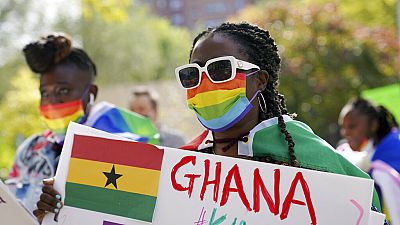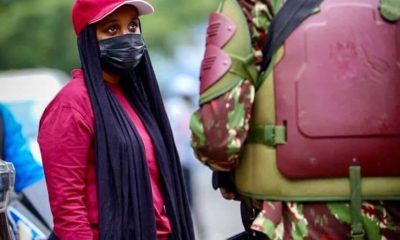
Foreign
Ghana’s Anti-LGBTQ+ Bill: What You Need to Know

iexclusivenews – Ghana’s parliament has recently passed a harsh bill that criminalizes LGBTQ+ identity and activism.
The bill has sparked outrage and fear among human rights groups and LGBTQ+ people in the country.

Here are some key points to understand the bill and its implications.
What Does The Bill Say?
The bill, titled The Promotion of Proper Human Sexual Rights and Ghanaian Family Values Bill 2021, states that anyone who identifies as LGBTQ+ or expresses any form of non-heteronormative sexual orientation or gender identity can face up to three years in prison.
The bill also bans the formation, funding, or promotion of any LGBTQ+ groups or events, with a penalty of up to five years in jail.

Furthermore, the bill prohibits anyone from engaging in or supporting LGBTQ+ advocacy campaigns, especially those targeting children, with a maximum sentence of 10 years behind bars.
The bill also requires the public to report any suspected LGBTQ+ individuals or activities to the authorities for “necessary action”.
READ MORE:
See Why Ghana Police Shut LGBT Centre in Accra
Police Target LGBTQ Community After Viral Video Challenge
Why Was The Bill Passed?
The bill was supported by both the ruling and opposition parties in Ghana’s parliament, with only a few dissenting voices.
The bill was reportedly drafted in response to the opening of Ghana’s first LGBTQ+ community centre in Accra, the capital city, in January 2021.
The centre was shut down by the police after facing protests and pressure from religious and traditional leaders in the predominantly Christian nation.
The bill’s proponents claim that the bill is necessary to protect Ghana’s culture and family values from foreign influences and to uphold the country’s moral and legal standards.
The bill’s opponents argue that the bill is a gross violation of human rights and dignity, and that it will fuel hatred, violence, and discrimination against LGBTQ+ people in Ghana.
What Happens Next?
The bill will become law only if it is signed by President Nana Akufo-Addo, who has the power to veto or amend it.
The president has not yet made his stance clear on the bill, but he has previously said that he would follow the will of the majority of Ghanaians on the issue.
Gay sex is already illegal in Ghana, with a punishment of up to three years in prison, but the law is rarely enforced.
Last month, Amnesty International warned that the bill “poses significant threats to the fundamental rights and freedoms” of LGBTQ+ people in Ghana, and urged the president to reject it.
Activists and allies fear that the bill will unleash a wave of witch-hunts, arrests, and attacks against LGBTQ+ people and their supporters, and that many will have to flee or hide for their safety.
They also hope that the international community will put pressure on Ghana’s government to respect and protect the rights of LGBTQ+ people, and to repeal the bill if it becomes law.




























